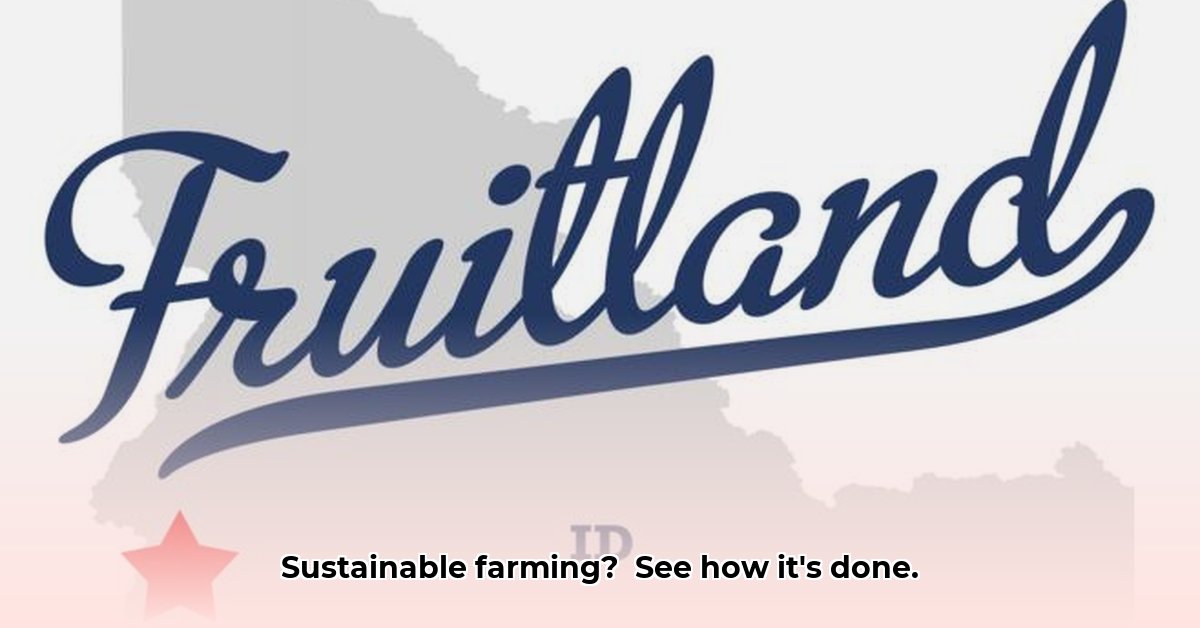
Campbell Tractor, a John Deere dealership in Fruitland, Idaho, is more than just a supplier of farm equipment; it's a vital partner in fostering sustainable agriculture within Southern Idaho's thriving farming community. By providing access to cutting-edge technology and flexible financing options, Campbell Tractor empowers farmers to adopt environmentally sound practices, boosting both profitability and environmental stewardship. Learn more about sustainable farming initiatives here.
Campbell Tractor's Role in Sustainable Idaho Agriculture
The image of a farmer meticulously guiding a tractor across a field is evolving. Modern farming now incorporates precision agriculture, leveraging GPS-guided machinery and smart spraying systems to optimize resource utilization. Campbell Tractor enhances this evolution by offering farmers access to John Deere's advanced technology, including GPS-guided tractors and precision application equipment. This technology translates to significant reductions in fuel consumption and fertilizer waste, resulting in decreased environmental impact and improved efficiency. How much more efficient? One local farmer, leveraging these technologies, reported a 15% reduction in fertilizer usage while maintaining crop yields. But the impact extends beyond technological prowess. Campbell Tractor's commitment to readily available financing options plays a critical role in making these sustainable practices accessible to a broader range of farmers. This financial accessibility is paramount in driving widespread adoption of environmentally friendly technologies within the region.
Addressing Challenges and Opportunities for Growth
While Campbell Tractor facilitates the adoption of sustainable practices through advanced equipment, an opportunity exists to strengthen their own internal commitment to environmental responsibility. Currently, a clearly defined, company-wide sustainability initiative is absent. However, this presents a powerful opportunity for proactive leadership within the agricultural sector.
Developing a comprehensive, quantifiable sustainability strategy is paramount. This would entail setting specific, measurable goals, such as reducing their carbon footprint by a certain percentage over a defined period. Investing in robust employee training programs focused on sustainable agricultural techniques would further enhance their impact. Training staff on optimizing water use, minimizing fertilizer runoff, and implementing other eco-conscious practices will empower them to be more effective advisors for their clients. Furthermore, forming strategic partnerships with local environmental organizations would not only amplify their message but also facilitate collaborative efforts beneficial to both the environment and the community. This joint approach, possibly through shared educational workshops or community outreach initiatives, would position Campbell Tractor as a true leader in the increasingly environmentally conscious agricultural marketplace.
Real-World Success Stories: Farmers Making a Difference
The success of Campbell Tractor’s approach is vividly illustrated through the achievements of local farmers. One farmer, utilizing a John Deere tractor and precision application techniques acquired through Campbell Tractor, significantly reduced fertilizer consumption, saving money and benefiting the environment. Another farmer, employing Campbell Tractor’s financing options to acquire a fuel-efficient combine harvester, experienced a substantial reduction in their carbon footprint during harvest. These are not isolated incidents – they are testaments to Campbell Tractor's positive influence on the region’s farming landscape and the tangible benefits of embracing sustainable practices.
Looking Toward the Future: Campbell Tractor’s Role in Sustainable Farming
The future of agriculture is inextricably linked to sustainable practices. Campbell Tractor, with its established access to John Deere's cutting-edge technology, is uniquely positioned to play a leading role in this transformation. However, proactively embracing and demonstrating sustainability within their own operations is essential for long-term success. The long-term vision must encompass more than simply providing the tools; it must include investing in their own sustainable practices. Exploring the integration of electric or hybrid tractors into their offerings and expanding their parts inventory to include more sustainable alternatives would signal a proactive commitment to a greener future. Collaborating with research institutions to develop new agricultural technologies tailored to the regional needs would further cement Campbell Tractor's leadership position in the field.
Actionable Steps for Continued Growth and Sustainability
To further solidify their role as a champion of sustainable agriculture, Campbell Tractor should implement the following:
Develop a Measurable Sustainability Plan: Establish SMART (Specific, Measurable, Achievable, Relevant, Time-bound) goals to reduce their environmental impact. This plan should be transparent and publicly accessible.
Invest in Comprehensive Employee Training: Provide in-depth training on sustainable farming practices, equipping employees to effectively advise customers and promote best practices.
Forge Strategic Partnerships: Collaborate with environmental organizations and research institutions to facilitate knowledge exchange, participate in joint initiatives, and promote sustainable solutions.
Explore Renewable Energy Options: Transition to renewable energy sources such as solar power for their facilities as a bold commitment to reducing carbon emissions.
Expand Sustainable Part Offerings: Proactively increase the availability of sustainable parts and repair solutions for John Deere equipment, supporting the long-term viability of sustainable farming practices.
By taking these steps, Campbell Tractor can not only support the transition to sustainable agriculture in Southern Idaho but also become a model for the industry, ensuring a secure and prosperous future for both the region's farmers and the environment.